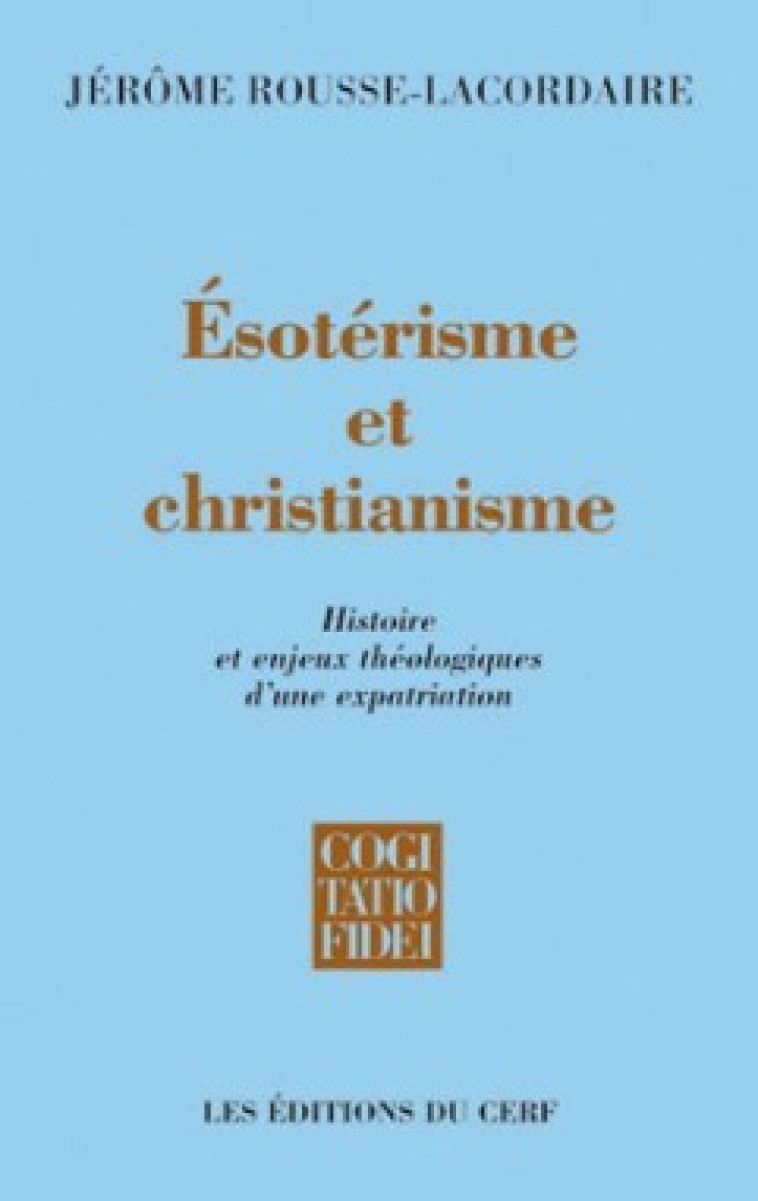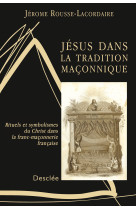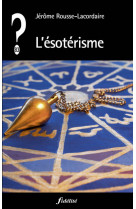Esoterisme et christianisme
Jérôme rousse-lacordaire
L'ésotérisme a mauvaise presse dans le monde catholique. Pourtant, cette forme de pensée a connu une grande faveur dans certains milieux catholiques, pas toujours marginaux, depuis la Renaissance, et encore aujourd'hui, elle attire nombre de chrétiens. En outre, la pensée ésotérique a parfois profondément influencé, directement ou indirectement, des intellectuels et savants de diverses disciplines, particulièrement dans le domaine de l'histoire des religions. Toutefois, le discrédit souvent porté par la recherche universitaire sur ces courants, ainsi que le fort soupçon d'hétérodoxie à leur encontre, ont conduit la plupart des théologiens à s'en désintéresser ou à se contenter de jugements aussi approximatifs qu'a priori hostiles (à l'exception notable d'Henri de Lubac, Jean Daniélou ou Hans Urs von Balthasar). « Ésotérisme et christianisme » entend donc réexaminer à nouveaux frais la question par trop négligée des rapports entre ésotérisme et christianisme, d'abord en étudiant les grandes étapes de la formation, d'une part, de la forme de pensée ésotérique dans le monde occidental depuis la Renaissance et, d'autre part, de la perception de cette pensée par les autorités catholiques ensuite en proposant, sur cette base, des critères d'évaluation théologique des ésotérismes qui se réclament du christianisme. Sont ainsi examinés : les « traditions secrètes des apôtres », la « philosophia perennis » renaissante et ses avatars, la magie, la kabbale chrétienne, la franc-maçonnerie, le spiritisme, l'occultisme, le théosophisme et l'école traditionnelle de l'ésotérisme. D'un point de vue proprement théologique, l'analyse porte essentiellement sur la nature et les modalités de l'expérience ésotérique et sur sa place dans la pluralité des religions, sans oublier les implications pastorales d'une telle démarche.
--
Esotericism has rather a bad reputation in the Catholic world. Yet this form of thinking was once greatly favoured in certain Catholic circles, not all of them unconventional, at the time of the Renaissance. Even today, many Christians are still attracted. Moreover, esoteric thought has sometimes deeply influenced, directly or indirectly, intellectuals and scholars of various disciplines, especially in the domain of the history of religions. However, the discredit often directed by academic research on these schools of thought, as well as a strong suspicion of heterodoxy, have made most theologians lose interest or be content with judgements that are as hasty as they are, a priori, hostile (with the notable exception of Henri de Lubac, Jean Daniélou and Hans Urs von Balthasar). ‘Ésotérisme et christianisme' aims to re-examine the question, too long neglected, of the rapports between esotericism and Christianity, firstly by studying the main stages of the formation of esoteric thought in the Western world since the Renaissance, and secondly, the Catholic authorities' perception of that thought. On the basis of these observations, a criteria of theological assessment of the different forms of Esotericism which claim to be Christian is established. The book examines the ‘secret traditions of the apostles' the ‘philosophia perennis', now enjoying a renaissance, as well as its avatars magic, the Christian kabala, freemasonry, spiritualism, occultism, theosophism and the traditional school of esotericism. Adopting a purely theological point of view, the analysis focuses on the nature and the modalities of the esoteric experience and its place in the plurality of religions, without forgetting the pastoral implications of such an approach.



